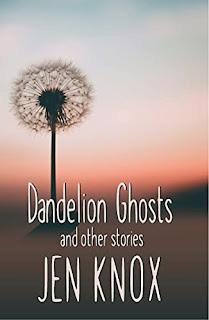Writing used to be my secret. It used to be my confidant when I was alone, afraid, overjoyed or perplexed. Then, I decided to major in it, and for awhile it became something else. It became a vessel for me to share said emotions with a select group of people who used writing in the same way. Writers became my community, and my confidant became not only the page but also the audience of teachers and fellow students who read my work. The expansion from solitary act to public act was exhilarating at first, even addictive when, say, some one “got it” and gave me positive feedback.
Then I went to graduate school where my audience expected more than honesty—they demanded something intangible and complex, and I became part of a community that expected things from work that hadn't yet been written. This time was, in fact, when I began to publish and refer to my writing as work.
Something changes when a writer begins to call her stuff work, to write with the knowledge that her confidant has become something else, it has become an art that carries with it the expectation of production. When writing becomes work, it becomes tempting to lose honesty and begin to write to expectations.
I bring this up because I think it's important for my professional writing career to be ignored when I write, especially those first drafts, but I wonder if this is really possible after one takes the leap from solitary action to public output. Ive read writers interviewed who say that they had to stop writing after a while, to try and get back that initial honesty before it will fully mesh with what they've studied of the craft. And I'm beginning to see why. It seems that work is being accepted or gently rejected (less form letters) by literary journals that used to, I thought, have standardized rejection notices with my name on them preprinted and ready for my next submission. Now that I have a fighting chance, that I can put together coherent sentences that reflect my honesty and love for writing and somehow still manage to tell a story, I have an even bigger audience and this audience can often infiltrate my thoughts, even as I write my first drafts.
As an exercise, Ive decided to begin again, to write for the rest of the summer as though no one will ever read my work, just to see what happens. I'm not sure it will work, but I have to try because I feel that even though I have some strong stories forthcoming in journals that publish work I love, I don't want to write for any of them. I want to try and get that initial motivation back, to write for no other reason than to figure things out, to question and assess on my own terms. We'll see what happens. Perhaps it's not possible. But I think it's important to try. Publication is a beautiful thing, but for sensitive types like me, the thought that I will be evaluated and judged before a story is even written makes the process less about what propelled me to write in the first place. I'll record my process, but not my work, and we'll see what happens.




